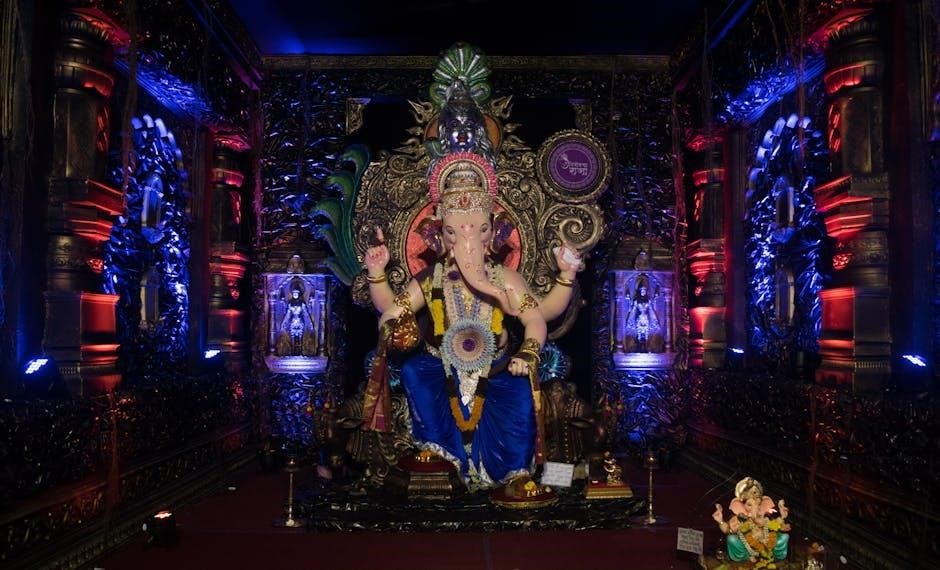Grant, O My Lord: Exploring the Baháʼí Prayer
This prayer, “Grant, O my Lord,” found within Baháʼí scripture, serves as a profound supplication for those who have passed, asking for divine grace and nearness to God․
Origin and Authorship of the Prayer
The prayer “Grant, O my Lord,” originates from the writings of Baháʼu’lláh, the Founder of the Baháʼí Faith․ Baháʼu’lláh, born in Persia in 1817, penned a vast collection of prayers, meditations, and theological treatises during His lifetime․ These writings form the core of Baháʼí scripture and provide guidance and inspiration for believers worldwide․ The specific prayer we’re exploring is included in the “Prayers and Meditations by Bahá’u’lláh,” a compilation meticulously translated by Shoghi Effendi․ Shoghi Effendi dedicated his life to translating and safeguarding these sacred texts․ This prayer offers solace and hope, reflecting the Baháʼí perspective on the soul’s journey after physical death․ It underscores the belief in continued spiritual progress in the afterlife․ Its beauty and profound meaning have resonated deeply, making it a cherished prayer recited in personal devotion and community gatherings․

Core Themes and Meanings
This prayer centers on themes of divine forgiveness, spiritual ascent, and the soul’s journey towards God․ It reflects Baháʼí beliefs concerning the afterlife and the ongoing spiritual development․
Ascension and Reunion
The prayer “Grant, O my Lord,” deeply explores the Baháʼí concept of spiritual ascension after physical death․ It speaks to the soul’s journey towards reunion with God, referred to as the “most exalted Companion․” This reunion signifies not a physical meeting, but a state of nearness and understanding․ The prayer implores that those who have ascended find solace and sanctuary within God’s glory, a state of eternal peace and spiritual fulfillment․
The phrase “repair unto Him” suggests a return to the divine source, shedding earthly attachments․ It envisions the departed soul finding its ultimate home in the spiritual realms, close to God’s presence․ This ascension marks a transition from the limitations of the physical world to the boundless possibilities of the spiritual realm, guided by divine grace and love․ It emphasizes the continuous journey of the soul towards perfection, even after death․
Forgiveness and Purification
A central theme within the “Grant, O my Lord” prayer is the plea for forgiveness and spiritual purification for the departed soul․ The prayer seeks to cleanse the soul from any imperfections or trespasses accumulated during its earthly existence․ This purification is seen as essential for the soul to progress in its spiritual journey and attain nearness to God․ The supplication requests that God “sprinkle upon them from the ocean of Thy forgiveness,” highlighting the immensity and boundless nature of divine pardon․
The act of forgiveness is portrayed as a transformative process, enabling the soul to shed its burdens and enter a state of spiritual clarity․ This purification process involves the removal of sorrows and the transformation of darkness into light, allowing the soul to enter a garden of happiness and divine grace․ The prayer emphasizes God’s qualities as the “Forgiving, the All-Bountiful,” assuring the soul of divine mercy․
Divine Companion and Sanctuary
The prayer “Grant, O my Lord” invokes the idea of the departed soul finding refuge and companionship in the divine realm․ It expresses a yearning for the soul to “repair unto Him Who is the most exalted Companion,” suggesting a reunion with a divine presence after earthly life․ This companion provides solace, guidance, and unwavering support throughout the soul’s onward journey․
Furthermore, the prayer petitions that the departed soul may “abide beneath the shadow of the Tabernacle of Thy majesty and the Sanctuary of Thy glory․” This imagery evokes a sense of protection, security, and closeness to God․ The “Tabernacle of Thy majesty” symbolizes God’s supreme authority and power, while the “Sanctuary of Thy glory” represents a sacred space filled with divine light and grace․ The soul, dwelling within this sanctuary, finds ultimate peace and fulfillment in God’s presence․

Context and Significance within Baháʼí Faith
This prayer holds a significant place within the Baháʼí Faith, particularly in the context of prayers for the departed and understanding the soul’s journey after physical life․
Prayers for the Departed
In the Baháʼí Faith, prayers for the departed hold immense importance․ “Grant, O my Lord,” functions as a central supplication offered on behalf of those who have passed on to the next realm․ These prayers aim to assist the soul in its onward journey, seeking divine forgiveness and purification․ The Baháʼí teachings emphasize the continuous progress of the soul after death, and prayers like this are believed to aid in its spiritual development․ The act of praying for the departed reflects the interconnectedness of humanity, both in this world and the next․ They are a testament to the belief that our actions and prayers can positively influence the spiritual well-being of those who have passed beyond the veil․ The prayer is a plea for grace, mercy, and acceptance into God’s kingdom, ensuring their continued ascent․
The Concept of the Soul’s Journey
The Baháʼí Faith views life as a journey of spiritual growth, both in this world and beyond․ The physical passing is seen as a transition, not an end, with the soul continuing its progress towards God․ The prayer “Grant, O my Lord” plays a vital role in this understanding, offering support to the soul in its post-mortal journey․ Baháʼí teachings describe the soul as an eternal entity, constantly evolving and drawing closer to its Creator․ This journey involves purification, refinement, and the acquisition of virtues․ The prayers for the departed assist the soul in shedding earthly attachments and embracing its spiritual nature․ The goal is to attain nearness to God, finding rest and joy in His presence․ The concept emphasizes the importance of living a life dedicated to spiritual growth, as this will directly impact the soul’s journey after death․ It highlights the eternal nature of the soul and its capacity for endless progression․

Supplication as a Key Element
In the Baháʼí Faith, supplication, evident in prayers like “Grant, O my Lord,” showcases humanity’s dependence on God’s grace․ It highlights humility and the need for divine assistance on the soul’s journey․
Humility and Dependence on God
The prayer “Grant, O my Lord,” fundamentally embodies humility, a core tenet of the Baháʼí faith․ It acknowledges human limitations and the necessity of divine assistance, especially concerning the departed souls and their journey․ The supplication inherently recognizes God’s supreme power and mercy, reinforcing the believer’s dependence on Him․ It asks for forgiveness, purification, and guidance, showcasing the soul’s reliance on God’s bounty․ This dependence isn’t seen as weakness but as a strength, fostering a deeper connection with the divine․ By recognizing our need for God’s grace, we open ourselves to receive His blessings․ The prayer illustrates that true spiritual progress comes from acknowledging our humble position before the Almighty․ In essence, “Grant, O my Lord,” teaches humility as a pathway to divine nearness․

Impact and Usage
The prayer deeply impacts personal reflection and memorial gatherings․ Its verses offer solace, hope, and a connection to the departed, commonly recited within personal devotion and communal settings․
Personal Devotion and Reflection
Within the realm of personal devotion, “Grant, O my Lord” becomes a source of profound reflection, guiding individual hearts towards solace and hope amidst loss․ The prayer’s verses, laden with imagery of divine forgiveness and nearness, offer a framework for contemplating the soul’s journey and the afterlife․ Individuals turn to this supplication during moments of grief, seeking comfort in its assurances of God’s mercy and the promise of reunion in the spiritual realms․ The act of reciting or meditating upon the prayer fosters a deeper connection with the divine, enabling individuals to process their emotions and find peace in the face of mortality․ Through the words of the prayer, believers strengthen their faith, reaffirm their belief in the immortality of the soul, and cultivate a sense of spiritual resilience․
Community Gatherings and Memorials
In community gatherings and memorials, “Grant, O my Lord” serves as a unifying element, bringing solace and spiritual upliftment to those who mourn․ The prayer’s recitation provides a shared expression of grief and hope, fostering a sense of collective remembrance and connection among community members․ During memorial services, the prayer’s powerful verses resonate, creating an atmosphere of reverence and spiritual contemplation․ The shared recitation of “Grant, O my Lord” reaffirms the community’s commitment to supporting one another during times of loss, strengthening the bonds of unity and compassion․ The prayer’s focus on divine forgiveness and the soul’s journey provides a framework for collectively reflecting on the meaning of life and death, fostering a deeper appreciation for the spiritual dimensions of existence․ It acts as a beacon of hope, illuminating the path toward healing and resilience․

